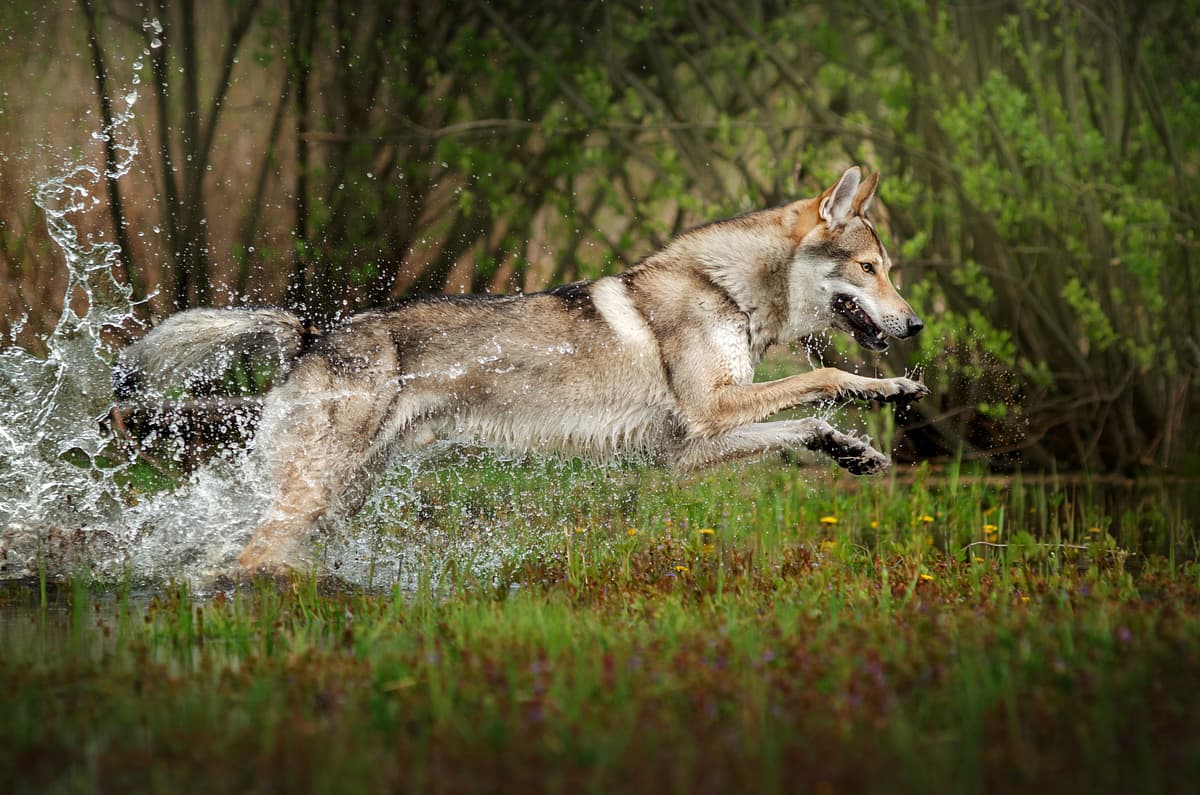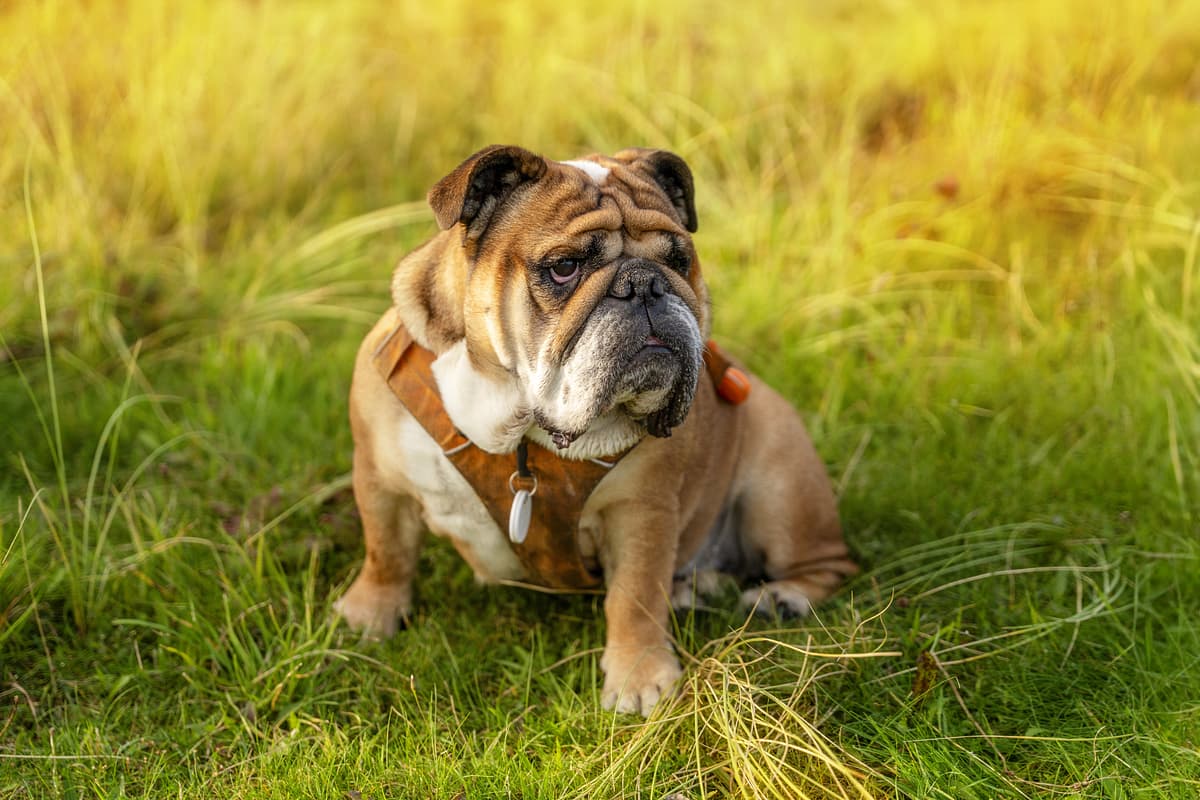Czechoslovakian Wolfdog vs English Bulldog
Discover the differences between Czechoslovakian Wolfdog and English Bulldog to make the best choice for your situation.
Try different breeds

Czechoslovakian Wolfdog
Athletic and highly intelligent, this breed thrives with active companions who appreciate challenge and adventure. Loyal yet independent, they form deep bonds and need consistent engagement.

English Bulldog
Stocky, courageous, and affectionate, this breed charms with its wrinkled face and calm nature. Loyal and gentle, it thrives as a loving family companion.
Quick comparison
Large
26–36 kg
Straight double coat, dense undercoat
12–16 years
20–29 kg
High energy
Medium
23–25 kg
Short, smooth
8–10 years
18–23 kg
Low activity needs
Personality & behavior
Compare the personality traits and behavioral characteristics of both breeds.
Czechoslovakian Wolfdog
Wary with strangers, loyal to family members
Learns quickly, solves problems independently
Needs vigorous exercise and daily activity
Enjoys games but prefers purposeful activities
May struggle with changes in environment
English Bulldog
Affectionate and gentle with family and children
Learns basic commands with some patience
Prefers lounging over vigorous physical activity
Enjoys play but tires fairly quickly
Adjusts well to most living environments
Care needs
Exercise, grooming, and daily care requirements
Czechoslovakian Wolfdog
Hip dysplasia, degenerative myelopathy
English Bulldog
Brachycephalic syndrome, skin fold infections
Suitability
How well each breed fits different living situations and families
Czechoslovakian Wolfdog
Not ideal
Requires experienced handler due to strong instincts and training needs
Poor fit
Needs space and frequent exercise, not suited for confined living
Excellent match
Thrives with active owners who provide daily physical and mental challenges
Needs caution
May be too energetic and mouthy for small children without supervision
Not recommended
High prey drive and dominance can cause issues with other pets
Poor fit
Suffers from separation anxiety and becomes destructive when left alone long hours
English Bulldog
Good option
Easygoing, low-maintenance nature suits owners with limited dog experience
Excellent fit
Moderate exercise needs and calm demeanor work well in small living spaces
Not ideal
Low stamina and breathing issues make them unsuited for high-activity lifestyles
Very suitable
Gentle, patient, and tolerant with young children when properly socialized
Usually compatible
Generally sociable but may need guidance with other pets, especially dogs
Not recommended
They struggle with long periods alone and are prone to separation anxiety
Breed strengths
What each breed excels at and their best qualities
Czechoslovakian Wolfdog
- Highly intelligent and quick to learn
- Exceptional endurance and stamina
- Strong loyalty to familiar people
- Versatile working and sporting abilities
- Very alert and responsive watchdog
English Bulldog
- Affectionate with family members
- Generally good with children
- Low exercise requirements
- Minimal grooming needs
- Adaptable to apartment living
Challenges & considerations
Potential challenges and considerations for each breed
Czechoslovakian Wolfdog
- High prey drive around small animals
- Needs extensive daily physical exercise
- Can be wary of unfamiliar people
- Prone to stubbornness during training
- May develop separation anxiety if isolated
English Bulldog
- Prone to respiratory problems
- High risk of overheating
- Susceptible to skin infections
- Can be stubborn during training
- Tends to drool frequently
Ready to choose your perfect breed?
Learn more about each breed or compare other breeds to find the perfect match for your lifestyle.
Discover more helpful tools
Make use of our other free tools to get the most out of your pet experience
